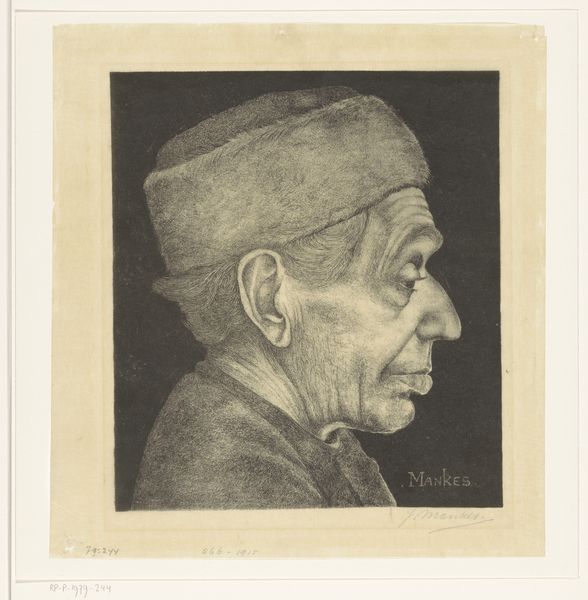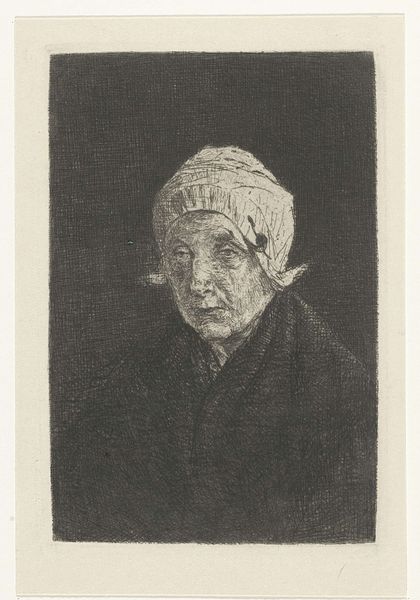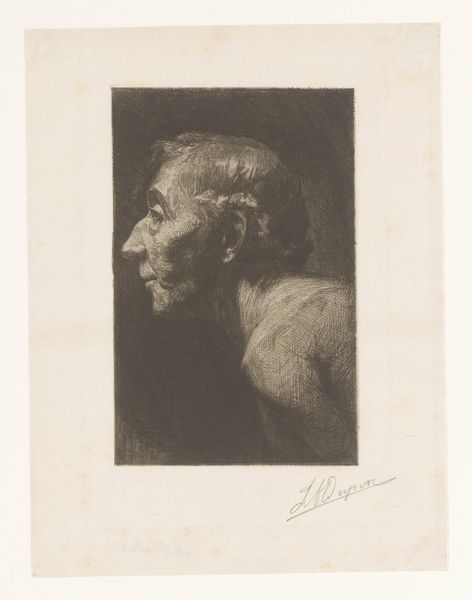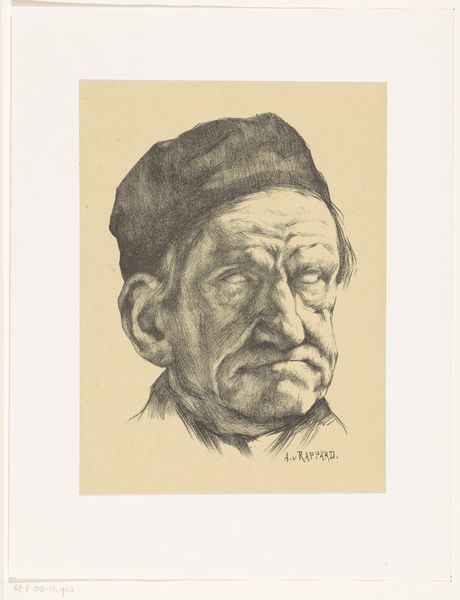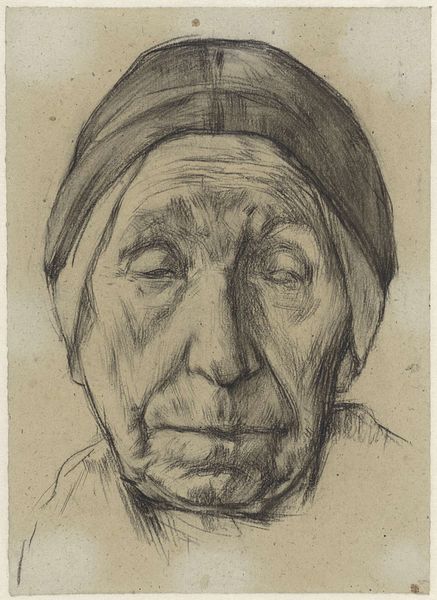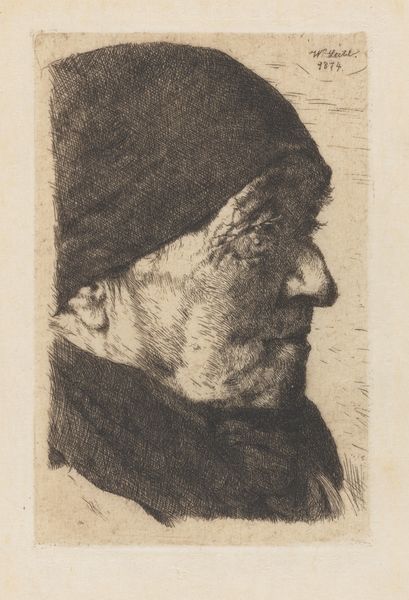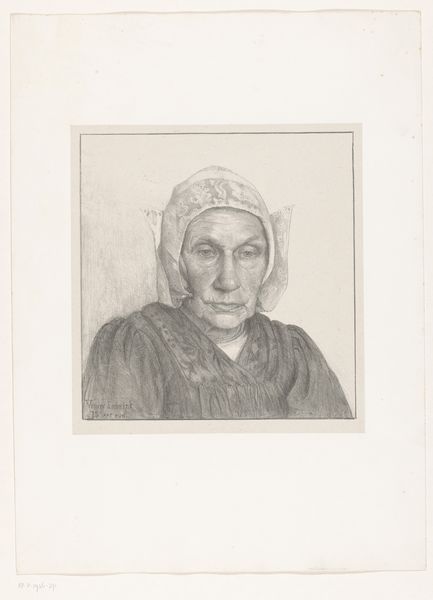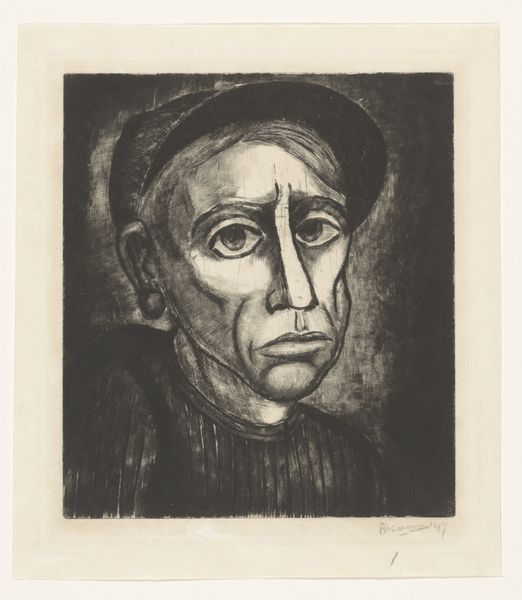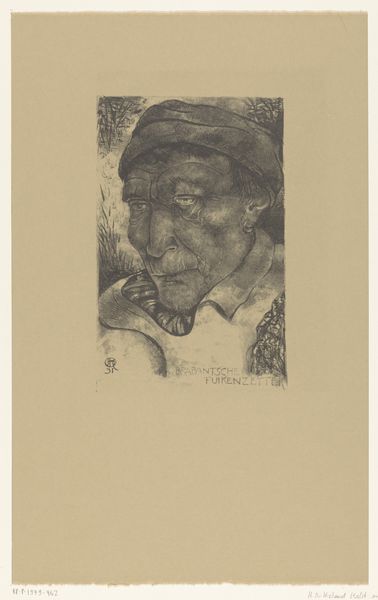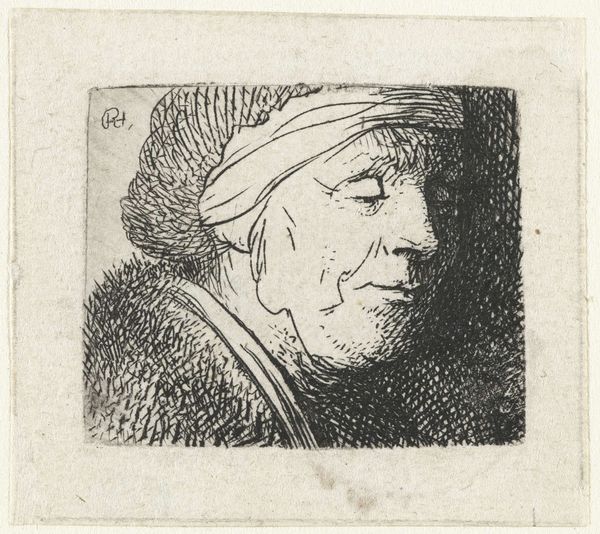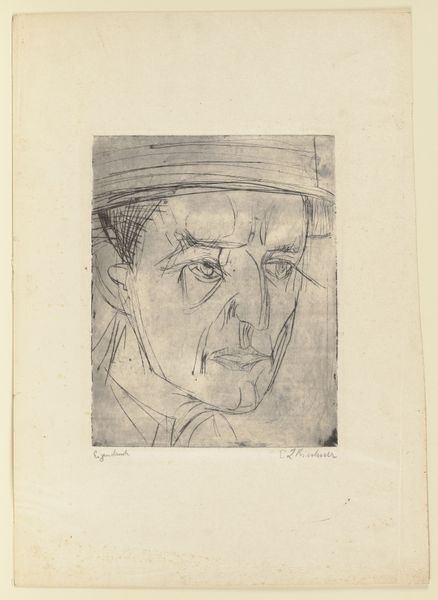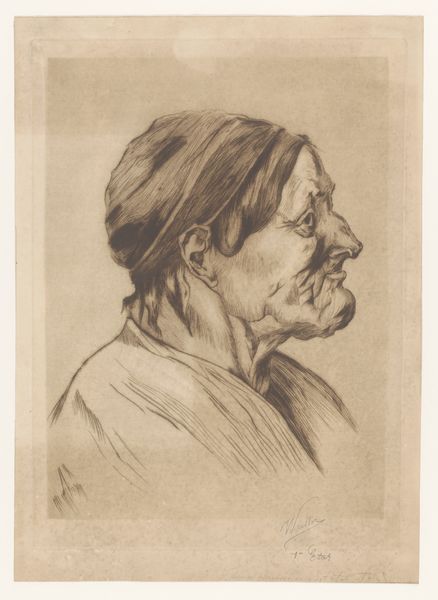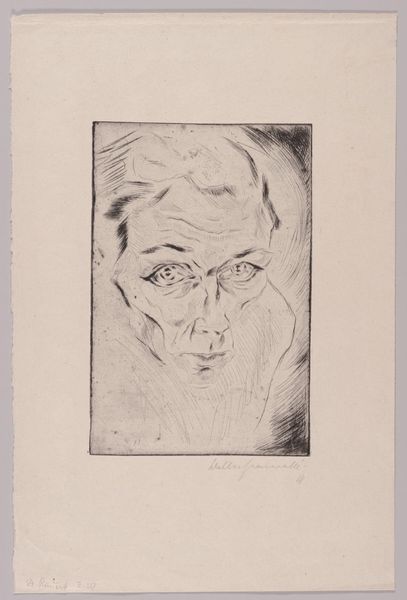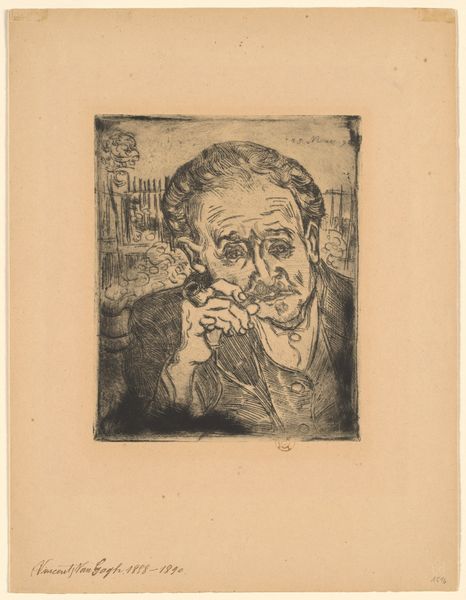
drawing, pencil
#
portrait
#
drawing
#
pencil drawing
#
pencil
#
portrait drawing
#
modernism
#
realism
Dimensions: height 386 mm, width 372 mm
Copyright: Rijks Museum: Open Domain
Editor: Here we have Jan Mankes' pencil drawing, "Portrait of Douwe de Groot," created before 1915. It's quite striking; the detail is incredible. What's your perspective on this piece? Curator: Well, looking at the material reality, it’s a pencil on paper. But it's how Mankes manipulated this basic combination that grabs my attention. Notice the varying pressures. See how he uses a darker tone to create depth and dimension versus light smudging? This wasn't just replicating reality; it's a study in how the artist used simple tools to create social commentary. Editor: Social commentary? What do you mean? Curator: Consider the time it was made. Pre-World War I, a time of massive societal change. Mankes, though portraying De Groot realistically, may also reflect anxieties of the time. It is not only important who is drawn, but *why* this portrait and how labor affects representation of status or lack thereof. What kind of hat is he wearing? How are those shadows created to infer the subject's face? These things speak to cultural pressures more than individual character. Editor: That's a completely different way of seeing it! So, you're suggesting it is not just about capturing his likeness, but also the implications of labor, material and their use. Curator: Precisely! How he rendered the hat signifies material and possibly trade of the person shown in the drawing. Editor: I hadn’t considered that level of depth before. I will pay more attention to the materials that artworks employ in addition to historical contexts and how the social realities affected artist's intention when rendering an artwork. Curator: And I'll try to focus more on immediate, personal responses.
Comments
No comments
Be the first to comment and join the conversation on the ultimate creative platform.
